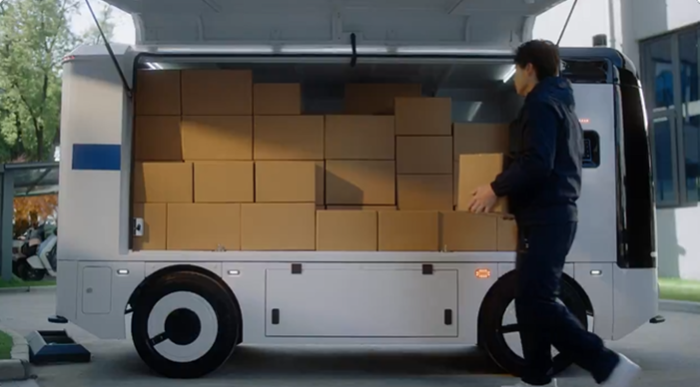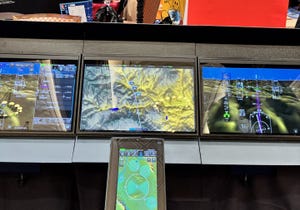Beep’s Self-Driving Shuttles Coming to Atlanta
The self-driving shuttle will operate free of charge along two designated routes until early next year

An area of Atlanta has introduced an autonomous shuttle service pilot to gauge how effective it can be in helping to reduce car usage.
The Cumberland Community Improvement District (CID) has teamed with Beep to operate the self-driving Hopper over the next eight months.
Cumberland is an edge city located in the north west Atlanta metropolitan area, around 10 miles from downtown.
Nearly 90,000 people work in its offices and retail developments, with tens of thousands more living there, but as the area continues to expand, solutions are being sought to try to limit the reliance on automobiles.
That’s where the Hopper comes in.
Until March of next year, it will operate free of charge along two designated routes, connecting key destinations around the Cobb Galleria and the Battery Atlanta as part of a longer-term mobility project being developed by the Cumberland CID called the Cumberland Sweep.
Ultimately, the Sweep is envisaged to incorporate a path more than three miles long around the core of the Cumberland district with dedicated walking and biking lanes. It aims to provide improved accessibility, enhanced safety and alternative transportation options, linking locations such as Truist Park (home of the Atlanta Braves), Cumberland Mall, Cobb Energy Performing Arts Centre and the Chattahoochee River National Recreation Area (CRNRA), as well as the Battery and Galleria.
The role autonomous shuttles can play in the evolution of the Sweep will be partially defined by the pilot. Officials from the CCID are to use the eight-month trial to collect data, evaluate performance and assess feedback from the community to fine-tune a strategy that will be implemented over the next few years.
The Autonom Shuttle Evo electric shuttles operated by Beep are made by French firm Navya and can accommodate up to 15 people, running at a maximum speed of 15mph and with around nine hours of battery life. One Hopper is being trialed initially, but longer term the goal is to have as many as eight running on the Sweep. The shuttles use an armory of sensors, including lidar, cameras and GNSS antenna, to deliver their automated functionality.
Over the past few years, Beep has run an array of AV tests and pilots in several locations across the United States, including California, North Carolina and Peachtree Corners, the Smart City just north of Atlanta. Earlier this month it partnered with Florida’s Department of Transportation to launch a shuttle service in Altamonte Springs.
“By embracing Beep’s cutting-edge solutions, we are providing our community with a sustainable and convenient transportation option that prioritizes connectivity and safety,” said Kim Menefee, executive director of the Cumberland CID. “The Cumberland Hopper represents our commitment to innovation and progress, and we look forward to the positive impact it will have on our district.”
Joe Moye, CEO of Beep added: “Our autonomous solutions are designed to provide equal access to transportation and streamlined connectivity to communities across the country. The Hopper pilot program exemplifies our shared mission of providing safe and effective transportation.”
About the Author
You May Also Like








